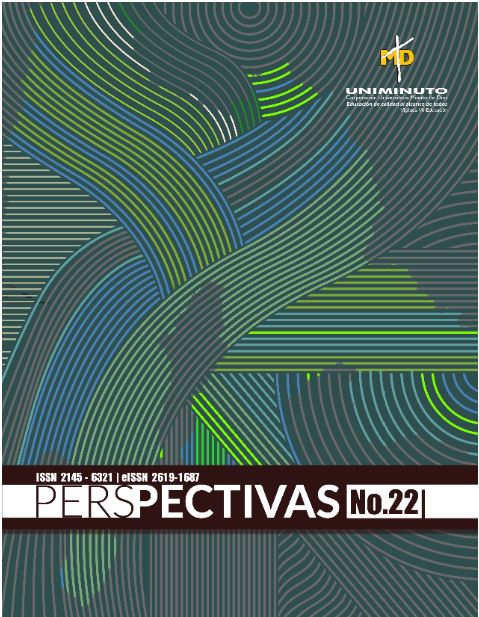Investigación en la gestión de la educación: sus aportes en la solución de problemas dentro del centro escolar
Barra lateral del artículo
Cómo citar
Detalles del artículo

Esta obra está bajo una licencia internacional Creative Commons Atribución 4.0.
Contenido principal del artículo
Resumen
El ensayo tiene por objetivo resaltar los aportes que la investigación educativa provee para dar solución a los problemas que se presentan dentro del ciclo de la función administrativa; esta solución se fundamenta en la información que se obtiene en un proceso investigativo y, en el uso que la persona administradora del centro escolar le puede dar a esos insumos dentro de su gestión educativa. Los principales análisis se hacen a partir de la información que sirve de base para la detección de problemas, identificación de las acciones que realiza la comunidad educativa buscando soluciones, la sistematización de la gestión del trabajo colaborativo en comunidad y, la toma de decisiones que permite la planificación estratégica dentro de la función administrativa, y así, lograr reflexionar en los aportes que brinda la investigación a la gestión educativa. Se concluye que, la información que resulta de un proceso investigativo permite proyectar acciones hacia la solución de problemas; esta información, consocia a la gestión de la educación, no solo facilita comprender el problema, sino también, propicia diseñar estrategias que le den una solución y así, contribuir con el buen funcionamiento del centro escolar hasta lograr de manera exitosa el logro de los objetivos institucionales y la mejora de la educación.
Referencias
Alonso-Arévalo, J. (2019). ¿Qué es y qué importancia tiene la Gestión de Datos de Investigación (GDI)? Desiderata, 10 (2), [pp. 48-52]. https://gredos.usal.es/bitstream/handle/10366/139056/GDI%20Desiderata.pdf?sequence=1&isAllowed=y
Barrantes, R. (2016). Investigación: un camino al conocimiento, un enfoque cuantitativo, cualitativo y mixto. (2da edición). EUNED
Bustamante, S., Logroño, M. y Torres, G. (2019). La investigación educativa, camino para la innovación en educación. Del Río, J. (coordinador). Investigar para conocer, innovar para mejorar. La formación de docentes investigadores en Educación Inicial. UNAE (pp. 37-46). https://www.academia.edu/42157467/Investigar_para_conocer_innovar_para_mejorar_La_formaci%C3%B3n_de_docentes_investigadores_en_Educaci%C3%B3n_Inicial
Chiavenato, I. (2014). Introducción a la teoría general de la administración. (4ta edición en español). McGraw-Hill/Interamericana editores, S.A. de C.V
Flores, G., Barreto, N., Álvarez, E., Santamaría, J. (2019). Tendencias en investigación educativa: contextos y oportunidades. UNIMINUTO. file:///C:/Users/Catty/Downloads/Tendencias_en_investigacion_educativa_co.pdf
Garbanzo-Vargas, G. (2016). Desarrollo organizacional y los procesos de cambio en las instituciones educativas, un reto de la gestión de la educación. Revista Educación. 40(1), [67-87]. https://revistas.ucr.ac.cr/index.php/educacion/article/view/22534
Liébana, M. (2018). Investigación Educativa. Revista Publicaciones didácticas. N.100 [724 a 731]. https://publicacionesdidacticas.com/hemeroteca/articulo/100202/articulo-pdf
Palacios, A., Ramírez K. y Rodríguez A. (2014). Gestión del proceso de toma de decisiones en el Colegio Técnico Profesional de General Viejo. Revista Gestión de la Educación, Vol. 4, (1), [65-102].
Ruiz, W y Chen, E. (2021). gestión educativa en tiempos de pandemia: una propuesta de conceptualización y la vinculación con los modelos de gestión. J. Campos, J. Ruiz, W. (Eds). Experiencias de gestión educativa en el contexto de la emergencia sanitaria por COVID-19. [pp. 40-46]. MEP. https://investiga.uned.ac.cr/cined/wp-content/uploads/sites/9/2021/11/Gestion-Educativa.pdf
Sánchez, M., y Delgado, J. (2020). Gestión educativa en el desarrollo del aprendizaje en las instituciones educativas. Revista Hacedor. Julio – diciembre 2020. Vol. 4/ No 2, pp. 83-96 – ISSN: 2520 - 0747. https://outlook.live.com/mail/0/inbox/id/AQQkADAwATYwMAItYmFjZC04ZTI3LTAwAi0wMAoAEAALuIdPaOzMT7oW5IkLpnr6
Artículos más leídos del mismo autor/a
- Catty Orellana Guevara, Gestión educativa de frente a la globalización: reto ante la transformación digital , Perspectivas: Vol. 9 Núm. 24 (2024)

